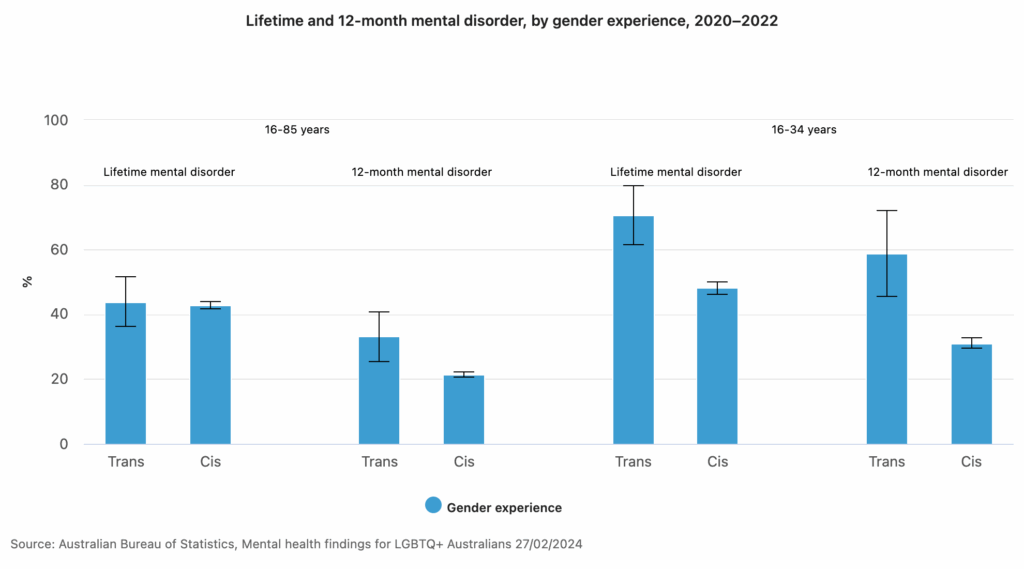By Dr Lingling He and Assoc Prof Xiaobo Zhao
Editor's Note: This blog provides a concise summary of a research paper co-authored by Dr Lingling He and Associate Professor Xiaobo Zhao: 'Resolving Investor Protection in Climate-Related Disputes: Some Legal Reflections' published in (2025) 55(6) Environmental Policy and Law. Read the full scholarly analysis →
Introduction
As governments accelerate climate action, international investment law is increasingly confronted with difficult legal questions. Measures adopted to meet climate commitments — such as phasing out fossil fuels, tightening environmental regulation, or reforming renewable energy subsidies — have led to a noticeable rise in investor-state dispute settlement (ISDS) claims. This growing body of climate-related disputes exposes a structural tension between climate governance and traditional investment protection regimes.

International investment agreements (IIAs) were largely designed to promote and protect foreign investment by granting investors strong substantive and procedural rights, including protection against expropriation, fair and equitable treatment (FET) and access to ISDS.[i] Climate governance instruments, by contrast, such as the Paris Agreement and the UN Framework Convention on Climate Change (UNFCCC), emphasise collective action, regulatory differentiation and long-term decarbonisation. The two regimes therefore operate on fundamentally different logics: investment law prioritises stability, while climate law depends on regulatory evolution.
The conflict becomes most visible when states implement climate policies that adversely affect existing investments.[ii] Climate regulation often justifies differential treatment based on carbon intensity or environmental impact, whereas IIAs traditionally apply uniform protections across sectors. When governments restrict high-emission activities or restructure energy markets, investors may respond by initiating arbitration, alleging treaty breaches.
Recent cases illustrate this trend. The Netherlands’ coal phase-out has been challenged in RWE v Netherlands,[iii] while Spain’s reforms to photovoltaic subsidies triggered numerous ISDS claims, including Cube Infrastructure v Spain.[iv] Although these measures pursue legitimate climate objectives, they have nonetheless been contested as violations of investment protections. These disputes highlight a systemic gap: many IIAs were drafted without explicit consideration of climate change, offering limited legal space for states to defend climate action.[v] As climate considerations become increasingly embedded in economic governance, this misalignment has become impossible to ignore.
Trends in Climate-Related ISDS Claims
ISDS allows investors to bring claims directly against states for regulatory measures that allegedly breach treaty protections, even where those measures pursue public welfare objectives such as environmental protection. While ISDS was initially embraced to promote cross-border investment and legal certainty, it has long attracted criticism for constraining states’ regulatory autonomy. This tension has become especially pronounced in the climate context.
It is useful to conceptualise these disputes as ‘climate-related ISDS claims’, mainly refer to arbitration proceedings initiated in response to economic losses arising from climate mitigation or transition policies. Empirical evidence suggests that such claims are concentrated in the fossil fuel and renewable energy sectors, with the Energy Charter Treaty (ECT) playing a particularly significant role. The ECT accounts for the vast majority of renewable energy ISDS cases, largely due to its broadly framed investment protection standards, especially FET.
Climate-related ISDS claims tend to fall into two categories. The first concerns disputes arising from the active implementation of climate-friendly policies, such as fossil fuel phase-outs or restrictions on carbon-intensive infrastructure. Fossil fuel investors have been especially active in this category.[vi] In RWE v Netherlands,[vii] a coal phase-out adopted to meet Paris-aligned targets reportedly gave rise to a €1.4 billion claim. Even where states ultimately prevail, the financial and political costs of defending such cases can influence future regulatory choices.[viii]
The second category involves disputes arising from the modification or suspension of climate-friendly policies, particularly renewable energy incentives. During the early 2000s, several European states adopted generous feed-in tariffs to attract renewable energy investment.[ix] Following the 2008 financial crisis, some governments concluded these schemes were fiscally unsustainable and restructured them. Spain, Italy, and the Czech Republic became frequent respondents in ISDS claims as a result.[x]
Spain’s experience is especially instructive. Investors argued that Spain’s reforms breached FET by frustrating legitimate expectations based on the original regulatory framework. Dozens of arbitration cases followed, with a substantial proportion of decided awards reportedly favouring investors. These disputes illustrate a central dilemma: climate policy requires flexibility, yet investment law — particularly when FET is interpreted expansively — can treat regulatory change as presumptively wrongful.
Why ISDS Struggles with Climate Action
The rise of climate-related ISDS disputes reveals deep structural limitations in the existing investment arbitration framework. Most IIAs were negotiated before climate change became a central regulatory priority. As a result, treaty standards were drafted without explicit reference to climate objectives, creating a misalignment between investment protection and contemporary climate governance.
One widely cited consequence is regulatory chill: states may delay, dilute, or abandon climate measures due to concerns about ISDS claims.[xi] Investment treaties often contain broad standards that grant tribunals significant interpretive discretion. Past awards have sometimes favoured investor interests, increasing uncertainty for regulators. Moreover, defending ISDS claims is costly and resource-intensive, even when states ultimately succeed. These pressures can discourage ambitious climate regulation, particularly in politically sensitive sectors.[xii]
Critics further argue that ISDS disproportionately affects developing countries and small island states, which often lack the legal and financial capacity to defend complex arbitration claims. This perceived asymmetry has strengthened calls for reform and contributed to withdrawals from treaties such as the ECT. At the same time, supporters of ISDS caution against abolition, arguing that ISDS can promote legal stability and encourage investment in renewable energy and low-carbon infrastructure. The challenge, therefore, is not whether ISDS should exist, but whether it can be re-designed to accommodate climate governance.
Three structural constraints help explain why ISDS has struggled in this area: insufficient treaty safeguards for climate regulation, inconsistent tribunal interpretation, and malfunctioning exceptions.
Insufficient grounds for relief
Statistics show that over 85% of the more than 3,300 IIAs currently in force are “old-generation” treaties concluded before climate change became a major regulatory concern.[xiii] These agreements typically contain broadly framed standards such as FET and expropriation, coupled with minimal safeguards for public interest regulation. Unsurprisingly, most climate-related ISDS claims rely on these outdated treaties.
The ECT exemplifies this problem.[xiv] Its vague drafting has enabled expansive interpretations favouring investor claims in both fossil fuel and renewable energy disputes. European states have borne the brunt of this architecture, prompting several to withdraw on the basis that the treaty is incompatible with contemporary climate goals. Similar weaknesses are evident in older agreements such as the former North American Free Trade Agreement (NAFTA), under which environmental measures were challenged in cases like Metalclad v Mexico. [xv]
Newer agreements, including the Comprehensive and Progressive Agreement for Trans-Pacific Partnership (CPTPP) and Canada-EU Comprehensive Economic and Trade Agreement (CETA), show some progress by affirming the right to regulate and including environmental provisions. [xvi] However, even modern treaties often fail to provide robust protection for climate policy space, leaving tribunals with limited guidance on how to balance investment protection against climate imperatives.
Inconsistent interpretation
ISDS lacks binding precedent, and treaty language is often ambiguous. This has resulted in divergent interpretations of key standards, particularly expropriation and FET. Tribunals have differed on whether regulatory measures with significant economic impact constitute indirect expropriation, and on how much weight to give to public interest objectives. While cases such as Philip Morris v Uruguay[xvii] demonstrate deference to public welfare regulation, others — such as Metalclad v Mexico — reflect a more investor-centric approach.[xviii]
FET has proven even more problematic. Some tribunals have interpreted it expansively, emphasising regulatory stability and legitimate expectations, while others have adopted a more restrained approach aligned with customary international law. This inconsistency creates uncertainty for states attempting to design and adjust climate policies.[xix]
Malfunctioning exceptions
Although many IIAs include environmental exceptions or carve-outs, these have often been interpreted narrowly or inconsistently. In cases such as Eco Oro v Colombia[xx]and Infinito Gold v Costa Rica, [xxi] tribunals rejected or constrained reliance on environmental carve-outs, even where measures were adopted in good faith. As a result, exceptions have frequently failed to provide reliable protection for climate regulation.
The Road Ahead: Reform Without Abolition
The collision between climate obligations and investment protection commitments has become a defining legitimacy challenge for ISDS. If climate action is repeatedly framed as treaty liability, the system risks losing credibility. Yet wholesale abandonment of ISDS is unlikely to be a viable solution, particularly given the continued need to attract cross-border investment, including green investment. A more realistic path lies in targeted and holistic reform.
First, IIAs should incorporate explicit “right to regulate” clauses that affirm states’ authority to pursue climate mitigation and adaptation. Clear treaty language can reduce the normative vacuum that invites tribunals to read investment protections in isolation and can signal to investors that climate policy operates within a dynamic regulatory environment.
Second, interpretive discipline must be strengthened. Precision drafting, interpretive annexes, and closed lists of FET breaches can help constrain arbitral discretion. Interpretation should be grounded in the Vienna Convention on the Law of Treaties (VCLT), including systemic integration of climate and environmental obligations (which is often associated with VCLT Article 31(3)(c)). Joint interpretation mechanisms and transparency rules can further reduce inconsistency and enhance legitimacy.
Third, there is a strong case for climate-focused carve-outs. General environmental exceptions have often proven inadequate. Climate-specific carve-outs should clearly identify protected climate measures, link them to internationally recognised commitments, and clarify legal consequences — either by excluding certain measures from ISDS or by establishing strong presumptions against liability.
Conclusion
Climate-related ISDS disputes reveal deep structural misalignments between traditional investment protection and contemporary climate governance. Left unaddressed, these misalignments risk entrenching regulatory chill at precisely the moment when states must act decisively to meet net-zero commitments.
A credible reform agenda must therefore go beyond procedural tweaks. It should legitimise climate regulation through explicit treaty provisions, reduce interpretive unpredictability, and ensure that climate-focused carve-outs genuinely protect regulatory space. Ultimately, the legitimacy of international investment law in the net-zero era will depend on whether ISDS can evolve from a perceived obstacle to climate action into a framework capable of coexisting with — and supporting — the global low-carbon transition.
[i] UNCTAD (2022a), “The International Investment Treaty Regime and Climate Action”, IIA Issues Note, Issue 3, September 2022.
[ii] OECD (2024), “Future of Investment Treaties Track 1 – Investment Treaties and Climate Change”, DAF/INV/TR1/RD (2024)1, 23 February 2024.
[iii] ICSID (2021), RWE AG and RWE Eemshaven Holding II BV v. Kingdom of the Netherlands, ICSID, Case No. ARB/21/4, 2021.
[iv] ICSID (2015), Cube Infrastructure Fund SICAV and others v. Kingdom of Spain, ICSID, Case No. ARB/15/20, 2015.
[v] Luz María de la Mora (2024), “Balancing investment and trade to address climate challenges”, UNCTAD, 14 November 2024, available at: https://unctad.org/news/blog-balancing-investment-and-trade-address-climate-challenges.
[vi] UNCTAD (2022), “Treaty-Based Investor-State Dispute Cases and climate action”, IIA Issues Note, Issue 4, September 2022. p. 12.
[vii] ICSID (2021), RWE AG and RWE Eemshaven Holding II BV v. Kingdom of the Netherlands, ICSID, Case No. ARB/21/4, 2021.
[viii] Ibid.
[ix] UNEP (2012), “Feed-in Tariffs as a Policy Instrument for Promoting Renewable Energies and Green Economies in Developing Countries”, Kenya, available at: https://unfccc.int/files/documentation/submissions_from_parties/adp/application/pdf/unep_us_ws2.pdf.
[x] UNCTAD (2022), n. 6, p. 5.
[xi] Bart-Jaap Verbeek (2023), “The Modernization of the Energy Charter Treaty: Fulfilled or Broken Promises?”, Business and Human Rights Journal, 8 (1): 97-102.
[xii] UN report shows that ISDS tribunals have already awarded over $100 billion to fossil fuel and mining industries, with potential future awards estimated at $340 billion. See UN (2023), UN General Assembly A/78/168, “Paying Polluters: The Catastrophic Consequences of Investor-State Dispute Settlement for Climate and Environment Action and Human Rights”, New York, 13 July 2023; available at: https://documents.un.org/doc/undoc/gen/n23/205/29/pdf/n2320529.pdf
[xiii] UNCTAD (2025), Investment Policy Hub, “International Investment Agreements Navigator”, available at: https://investmentpolicy.unctad.org/international-investment-agreements.
[xiv] According to UNCTAD, more than 20% of the 1,332 known ISDS cases between 1987 and 2023 have been brought under the ECT provisions. See UNCTAD (2022), n. 6, p. 3.
[xv] ICSID (1997), Metalclad Corp. v. United Mexican States, ICSID, Case No. ARB(AF)/97/1, 1997, para 109.
[xvi] Comprehensive Economic and Trade Agreement between Canada and the European Union, Article 8.9 (1).
[xvii] ICSID (2010), Philip Morris Brands Sàrl, Philip Morris Products S.A. and Abal Hermanos S.A. v. Oriental Republic of Uruguay, ICSID, Case No. ARB/10/7, 2010.
[xviii] Similar divergence can be seen in disputes over whether expropriation must affect an entire investment or only specific rights. See, e.g., ICSID (2001), CMS Gas Transmission Company v. The Republic of Argentina, ICSID, Case No. ARB/01/8, 2001; Eureko B.V. v. Republic of Poland, RG 2005/1542/A, IIC 99 (2006); ICSID (2000), Técnicas Medioambientales Tecmed, S.A. v. The United Mexican States, ICSID, Case No. ARB/00/2, 2000.
[xix] E.g., ICSID (2000), Técnicas Medioambientales Tecmed, S.A. v. The United Mexican States, ICSID, Case No. ARB/00/2, 2000; Glamis Gold Ltd. v. United States of America, UNCITRAL, Case No. CL-0062, 2003, para 597; ICSID (2005), Parkerings-Compagniet AS v. Republic of Lithuania, ICSID, Case No. ARB/05/8, 2005.
[xx] ICSID (2016), Eco Oro Minerals Corp. v. Republic of Colombia, ICSID, Case No. ARB/16/41, 2016.
[xxi] ICSID (2014), Infinito Gold Ltd. v. Costa Rica, ICSID, Case No. ARB/14/5, 2014.
Have questions or comments?
We welcome scholarly discussion and practitioner perspectives on this area of law.
Share your thoughts in the comments below. ⬇️
About the Authors
Dr Lingling He is Senior Lecturer in the School of Business, Law, Humanities and Pathways at the University of Southern Queensland (UniSQ), where she has been teaching and researching since 2013. Her research expertise spans international trade and investment law with particular focus on WTO law, bilateral trade and investment agreements, dispute settlement mechanisms, and Australia-China trade relations. She teaches Contract Law and International Trade Law, and her work bridges the critical intersection of trade policy, investment protection, and emerging regulatory challenges including climate governance.


Associate Professor Xiaobo (Bob) Zhao is Associate Professor in Law at the School of Business, Law, Humanities and Pathways at UniSQ. A Fellow of the Higher Education Academy (Advance HE, UK), Dr Zhao’s research and teaching encompass Tort Law, Comparative Environmental Law, Contaminated Land Law, International Environmental Law, and Media Law. His work on climate policy and environmental governance brings crucial interdisciplinary perspectives to international investment law challenges.










Recent Comments